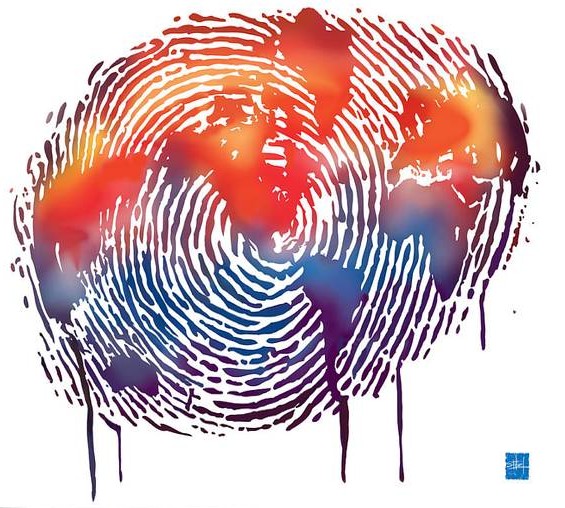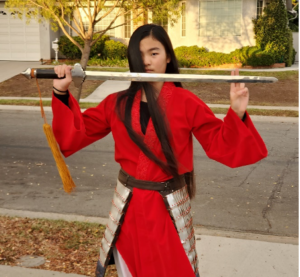
Photo credit: Sassan Filsoof
By Edward J.W. Park, Ph.D.,
Professor and Chair of Asian and Asian American Studies
The Department of Asian and Asian American Studies (AAAS) is proud to celebrate the Asian American and Pacific Islander Heritage Month by highlighting some of the accomplishments and activities of our faculty and students. Professor Curtiss Takada Rooks has continued to share his insights on the American multiracial experience in some of the most important venues on both sides of the Pacific. From the Japanese American Citizens League to the U.S.-Japan Council, Rooks leads by engaging political leaders and policymakers; foundations and universities; and college students and community youth.
During this unprecedented academic year, Professors Yanjie Wang and Thomas Plate have shown that the academic divide between Asian Studies and Asian American Studies is meaningless in a globalizing world. Wang led 17 Asian Pacific Studies major and minor students through their capstone thesis projects that explored the thick ties between Asia and the United States. As one of the most influential journalists covering Asia, Plate continues to train the next generation through his work at Asia Media International. In addition to his work at LMU, Plate has called for dialogue and constructive engagement between the People Republic of China and the United States on the pages of some of the world’s most influential newspapers. Father Lan Ngo continues to teach the popular ASPA 2100 “Asian Civilization” course and works to grow the number of ASPA majors and minors. He continues his important research on Catholicism in Vietnam.
I recently gave a talk on the history of Asian Americans to the Asian Pacific Islander Association of Kaiser Permanente and I also serve on a statewide committee that develops content for California’s Ethnic Studies Model Curriculum for K-12 schools. Students in the Asian Pacific American Studies minor program continue to make a meaningful impact on racial justice. This summer, Faith Nishimura has been chosen to receive a Dream Summer Fellowship from UCLA Labor Center and will work at Service Employees International Union’s (SEIU) Justice for Janitors campaign: one of the most important immigrant-led labor movements in the country.
OIA Buzz
- CALL FOR SUBMISSIONS:
June is Pride month and it is right around the corner. As part of our celebrations, we want to showcase the artistic expressions of the LGBTQ+ community and allies. We invite LMU students, faculty, staff, and alumni to submit an artistic work to showcase on our Pride 365 hub, which will launch on June 1. Submit any original and creative piece that represents the beauty, strength, diversity, and PRIDE for LGBTQ+ identities! We encourage variety, including:- Visual Art – drawings, paintings, digital and graphic designs, photography, sculptures;
- Written Works – poetry or prose;
- Musical contributions;
- Video – dance performances, skits, videography, etc.
Complete this form and upload your artwork to share your pride with LMU.
The Pride 365 hub will also include a “reading room” of resources and promotional items from the community. If you have a small business venture, podcast, book, article, or other similar content to share, please email OIA@lmu.edu with your name, LMU position/title or area of study, and a link.
- Cultural Consciousness Conversations hosts a cohort of faculty, staff, and administrators from all over LMU in a yearlong intergroup dialogue. Through discussion of topics such as microaggressions, power and privilege, gender identity, and racism, participants are able to share perspectives, learn from others, and build the knowledge and self-awareness that bridges gaps across cultural and identity differences. Current recruitment has been extended through summer. Sign up now for more information.
- In Six Words continues to accept submissions from all LMU community members. Connect with others, learn new perspectives, share your own, and contribute to a richer and more culturally conscious LMU. Read other stories and submit your own here.This week, we spotlight Angelina Lee, director of Employer Engagement in Career and Professional Development. Angelina shares her story on the immigrant experience:

“One Sword, Only Daughter, First-Born Son.”
Angelina says: I was supposed to be a son. After all, my Dad is the first-born son of the first-born son, and heir to the Wang family dynasty. We did not have gender-determining ultrasound technology 45+ years ago, so everyone just prayed to the heavens that Dad’s first child would also be a son. They even consulted a celebrity Chinese fortune teller to offer auspicious name options and chose a unique one that had the least number of strokes (easier to write) … and for the expected son. The name means “seeking scholarship and knowledge.”
To everyone’s surprise, I entered the world as a female. The family decided to keep the auspicious and male leaning name, as I was still the first-born child (albeit a daughter) of the first-born son. I was groomed at a young age to be both a son and daughter. I learned traditional Chinese calligraphy, opera, martial arts, poetry, history, music, and dance. I was going to be the good daughter that was supposed to be a son.
I immigrated from Taiwan to the U.S. in the third grade, and became the only Asian in my East Coast elementary school. For the first time in my life, my Chinese training meant nothing when I boarded that yellow school bus each day. The school cafeteria served strange breakfast foods such as tater tots, pancakes, and overcooked scrambled eggs. I was the only student in ESL in the predominately white and Black school, and received many stares and comments. No one seemed to care about calligraphy, Chinese history and opera. But my identity was highlighted when a boy chanted, “Chink, gook, ching chong, ching chong, donkey kong” in my face and made the slanty eyes gesture that many Asian-Americans are aware of. I decided to show how “Chinese” I was by sharing a kung fu front kick into his abdomen. My mom received a call from the school later that day, but to my surprise, she said she was proud that I stood up for myself against the racist slur. From that moment on, I realized that my Asian identity was not fully accepted in America, and I would have to continually fight against racism as an immigrant.
My grandfather died when I was in high school, and we flew back to Taiwan for a large traditional funeral. After the long funeral, the family met to discuss the distribution of my grandfather’s belongings and family heirloom items. I quietly asked my dad if I could have the family sword, which had a special engraving of “water dragon” in honor of my grandfather’s name. Hence, this sword was passed to the eldest son, who gave it to his first and only child, a daughter … who has two daughters. My second daughter dressed up as Mulan last Halloween, and wielded our family sword. We embody Mulan as daughters and warriors. We carry our family name, honor, and cultural heritage in both Asia and America, and will keep fighting against racism and injustice. I am the proud daughter of the first-born son, from a multi-generational immigrant family, who holds the “water dragon” sword.
Since the pandemic started in March 2020, we have seen a spike in racist incidents against the Asian American community. My daughters and I have personally experienced this at an Asian grocery store parking lot. We resist to urge to fight racism with racism, which will just make us the same as the perpetrators. Instead, we wield the sword of solidarity and coalition building with BIPOC community partners, and will continuously speak up with a lifelong commitment to justice for all.



